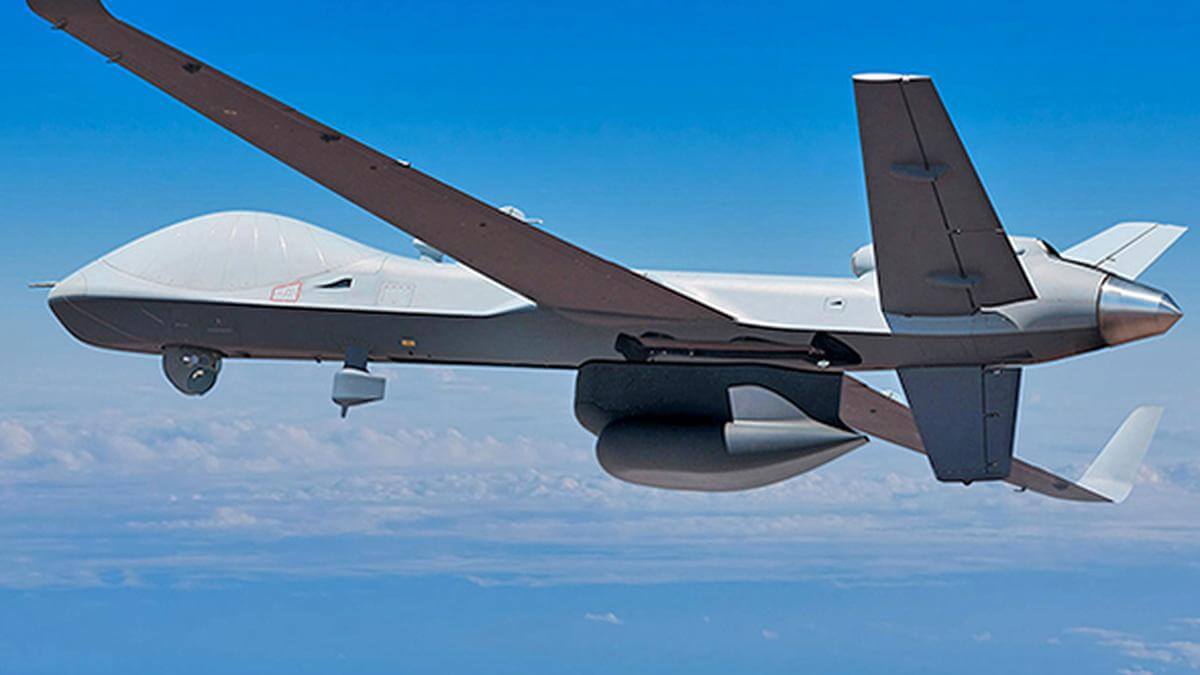According to media reports, India is setting up a military surveillance system with drones deployed along its borders to tackle surprise attacks similar to the 7 October Hamas offensive in Israel.
The move comes amid persisting tensions along India’s borders with China and Pakistan. The country is reassessing its defence preparedness following the Ukraine War and the recent Israel-Palestine conflict.
Overview
Over the past week, Indian defence officials recently met six vendors who deal in surveillance and reconnaissance drones in the country.
India is expected to soon place an order for locally developed drones as the military is seeking to set up and run the system across some parts of the border by next May.
India is setting up a surveillance system with drones across its borders to wade off surprise attacks like the one from Hamas in Israel https://t.co/U03petc7ax
— Bloomberg (@business) October 27, 2023
The system will take over 18 months to cover all borders. The estimated cost of the system would be around $500 million annually.
It will use solar-powered drones known as High-Altitude Pseudo Satellites. These 24x7 long-endurance drones will directly beam images to local command centres, thus acting as a backup to the traditional radar network at the borders.
Under the surveillance system, the entire 14,000 miles (22,531 km) of India’s land borders and coastline will be monitored.
Need for Increased Preparedness
India has alleged that drones are used along its Western border to move weapons, counterfeit currency, and drugs.
In the latest incident, the Border Security Forces (BSF) and Punjab Police recovered a drone from Punjab’s Amritsar on Thursday.
According to Mint, BSF recorded over 190 sightings of drones along the Pakistan border in 2022.
New Delhi’s rising concerns about Unmanned Aerial Vehicle (UAV) threats were further exacerbated when two explosive-laden drones attacked the Indian Air Force’s base in Jammu in June 2021.
The country’s ties with Pakistan are also in dire straits, thus making the border situation risky.
Meanwhile, Pakistan is getting its Unmanned Aerial Vehicle (UAV) supplies from China and Turkey — two leading manufacturers in the game.
India’s preparedness comes amid the precarious situation along its border with China, with a standoff along the Line of Actual Control (LAC) continuing despite several de-escalation talks.
Moreover, China has increased its presence in the Indian Ocean Region and become the world’s leading exporter of military drones.
The present situation makes it imperative for India to increase its drone capability to safeguard its land territories and protect its vital sea lanes of communication and trade.
India’s Drone Capability
The Indian government banned Indian drone makers from using Chinese components in 2022.
A joint defence force study suggested that India requires 97 drones to keep an eye on the borders with China and Pakistan. To this end, the country is acquiring the ‘Made in India’ drones at an estimated cost of Rs 10,000 crores (~$1.2 billion).
Additionally, the country is upgrading 70 Heron drones under Project Cheetah.
#India steps up border drone defense to wade off Hamas-like attacks: Reporthttps://t.co/gaZBMVXuTz pic.twitter.com/Wy9O1t8ay0
— Hindustan Times (@htTweets) October 27, 2023
In August, the IAF got a significant capability boost as it inducted four Heron Mark 2 drones in the Northern Sector, and the Indian Army signed a deal for 130 tethered drones and 19 tank simulators with a Bengaluru-based firm, NewSpace, under Emergency Procurement (EP).
India is also expected to conclude a deal for 31 MQ-9B UAVs with the US by February 2024.
Under the deal for ‘Predator’ drones valued at $3.07 billion, 15 Sea Guardians are being procured for the Indian Navy, while the Indian Army and Air Force will get eight Sky Guardians each.
The Indian Army is observing 2023 as the ‘Year of Transformation,’ seeking to induct new technologies to augment its efficiency.

